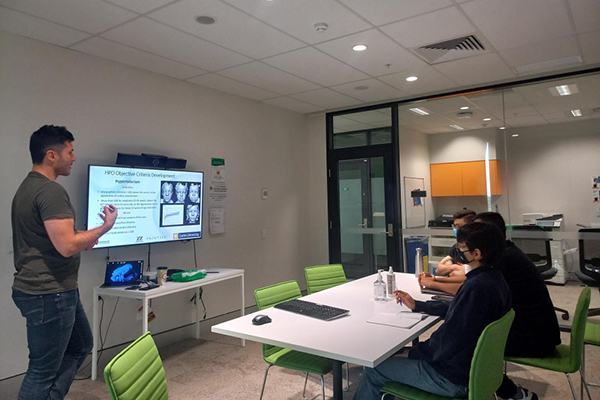Digital Solutions

Research, innovation and digital technology solutions for rare disease
The Rare Care Centre has a strong focus on integrating existing digital technologies into the Centre care workflow and developing new technologies that can deliver value for children and families with rare and undiagnosed diseases.
Current digital projects:
UTOPIA Platform
Unlocking Treatment Options, Personalised In-time Access is an AI-empowered and expert curated RUD knowledge management platform in development via a Precision Medicine Partnership with Singapore (SingHealth), Children’s Hospital Eastern Ontario in Canada, and UK patient advocacy organisation UNIQUE.
The platform aggregates disparate datasets to create value for families and clinicians. The first stage delivers a semi-automated patient letter with validated disease-specific resources.
Patient Portal
The Rare Diseases Patient Portal will provide a secure digital platform which acts as a central source of truth accessible by both families and care professionals, enabling exchange of clinical and support information across sectors (such as health, education, communities etc) in real-time.
Generative AI-Powered Solutions: In a world first, the Centre is leading the application of commercially available (e.g., ChatGPT) and non-commercial large language models on whole of health system electronic health record (EHR) data, particularly to allow deployment of technologies in low and middle-income countries that do not have an EHR or that cannot afford some Gen AI technologies.
Rare Disease Patient Passport
The “This is Me” patient passport, developed by CamRARE at Cambridge University using consumer co-design, utilises a traffic light system that allows children and families with rare diseases or medical complexities to quickly communicate information to health care professionals in stressful settings.
The Rare Care Centre is trialling this passport with families in the Nurse Navigator program.
Phenotype Trajectories
To address the challenge of complex conditions with limited data on disease progression, the Centre is pioneering the development of phenotype trajectories in conjunction with SingHealth Duke-NUS and Children’s Hospital of Eastern Ontario.
This approach involves breaking down a disease into its observable characteristics (phenotypes), which allows for a more comprehensive analysis and prediction of disease progression and health outcomes improving decision making for health pathways and educational and disability supports.